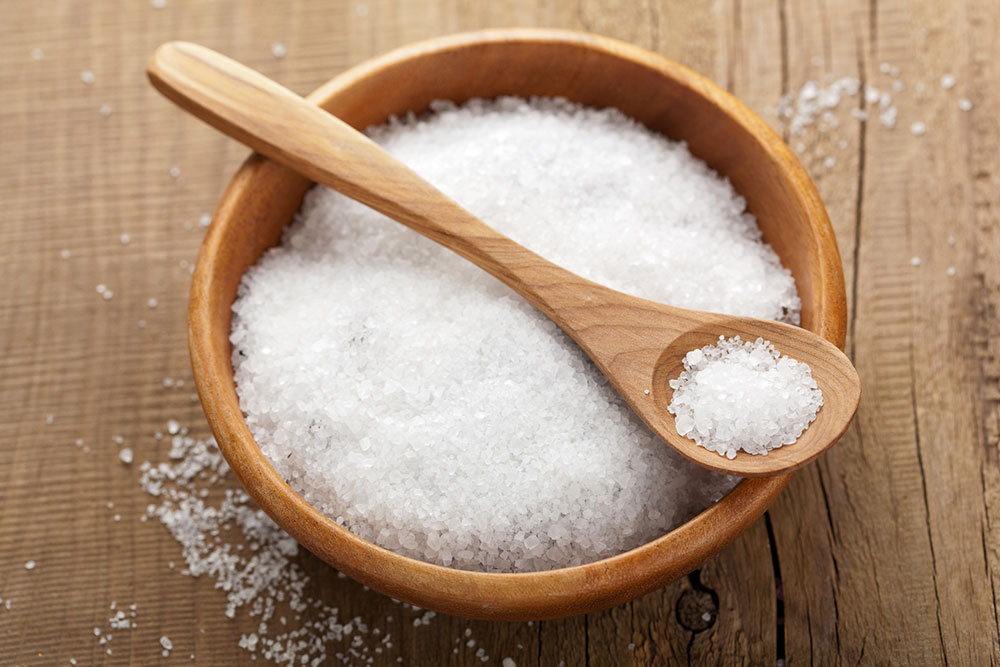10 foods that may weaken the bones

Ensuring that bones remain strong and healthy is essential to lead an active and fit lifestyle. And one of the major factors that contribute to maintaining healthy bones is the right choice of food. While the importance of consuming foods that improve bone health is often emphasized, it is equally important for one to be aware of foods that can weaken their bones. The following are a few such foods and beverages that can weaken the bones.
Salt
While it is important for individuals to consume salt, it is more important to consume it in moderation. Salt contains sodium, which, if consumed in high amounts, can drain some amount of calcium from the body through urine. Since calcium is of utmost importance for building bone strength, if too much calcium is lost, it can severely weaken the bones. Therefore, to maintain bone health, it is crucial to avoid or at least limit the intake of foods with high amounts of salt. These include salty snacks such as chips, canned soups, canned vegetables, and processed foods.
Coffee
Coffee is a highly popular beverage and a part of the daily life of a lot of individuals. However, one needs to be aware of the detrimental effects that consuming high amounts of caffeine can have on the bones. Consuming too much caffeine can hinder calcium absorption in the body, contributing to the weakening of the bones. So, it is important for one to be mindful of their consumption of caffeinated beverages such as coffee, tea, and sodas.
Sugar
As per studies, high sugar intake has also been linked with the weakening of the bones. Along with that, consuming too much sugar is also known to cause inflammation in the body. Hence, to maintain strong bones, it is best to consume sugar in moderation and limit the consumption of foods with high amounts of added sugar, such as pastries and candies. It is especially important for people with osteoporosis to limit their sugar intake due to its inflammatory properties.
Soda and soft drinks
Carbonated beverages are also best avoided or consumed in strict moderation to maintain bone health. This is because carbonated beverages contain phosphoric acid, which can cause the extraction of calcium from the bones. This can then lead to the weakening of bones. Moreover, a lot of beverages are also loaded with sugar, and some even contain caffeine, both of which are also known to be detrimental to bone health.
Animal protein
Protein is surely essential for the body, and meat is one of the most popular sources of protein. However, consuming high amounts of animal protein can lead to the extraction of calcium from the bones, which can weaken the bones. Hence, to safeguard bone health, it is advisable to reduce the intake of animal protein, especially red meat.
Raw spinach
Spinach is one of the most nutritious foods, which is highly beneficial to the human body in many ways. However, when it comes to bone health, consuming raw spinach is best avoided. This is because spinach contains a compound called oxalate. This compound hinders calcium absorption and, hence, poses a challenge to bone health. So, even though spinach contains calcium when consumed raw, the oxalates prevent that calcium from being absorbed by the body. Like spinach, another leafy green, Swiss chard, also contains oxalates and has the same effect on the body.
Foods rich in iron
Like protein, iron is also essential and beneficial for the human body in many ways. However, consuming too much iron can be potentially harmful to the bones. This is because high amounts of iron can also hinder the absorption of calcium, making it potentially damaging to the bones. Some iron-rich foods include leafy greens, legumes, red meat, poultry, fish, and nuts, among others. While one does not need to completely cut off these foods due to their iron content, it is essential to consume them in moderation.
Legumes
Legumes are highly nutritious, as they contain fiber, iron, and protein, among other nutrients. However, when it comes to bone health, they can actually be damaging. This is because legumes, such as beans and lentils, contain phytates that can hinder calcium absorption. To mitigate this effect, it is advisable to properly prepare legumes by soaking and cooking them. These steps help reduce the phytate content, making legumes a more bone-friendly food choice. Moreover, owing to their anti-inflammatory properties, beans can also be a good choice for preventing osteoporosis, provided they are prepared properly.
Nightshade vegetables
There have been some studies that show that nightshade vegetables, including tomatoes, potatoes, peppers, and eggplants, exacerbate joint pain and inflammation. While there has not been much evidence to support these claims, studies have said that a compound called solanine, which is present in these vegetables, is what worsens the inflammation. Despite there not being much evidence, it is better to practice moderation in consuming these vegetables for those who are at risk of or are going through bone and joint problems.
Hydrogenated oils
Hydrogenated oils are mainly found in processed and fried foods. These oils are a major source of trans fats, which have been linked to causing inflammation. Inflammation can then worsen bone and joint conditions such as osteoporosis and arthritis. Hence, to safeguard bone health, it is better to opt for healthier cooking oils like olive oil, which not only provide a safer alternative but also offer numerous other health benefits.
Maintaining strong and healthy bones is vital to living a fulfilling life. Along with limiting these foods and practicing caution when consuming them, it is also important to ensure that one consumes enough calcium-rich foods to maintain healthy bones. By incorporating these foods into daily meals, one can promote healthy bones and reduce the risk of fractures or other bone-related issues.











